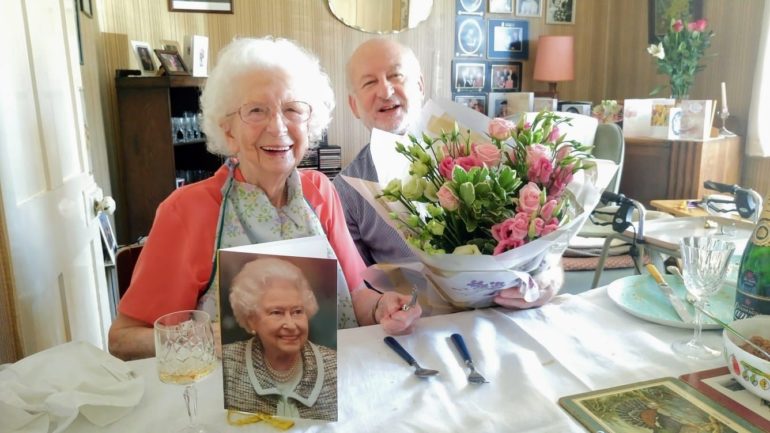It runs in your genes, doesn’t it?
I recently visited my Gran to celebrate her 103rd birthday. It’s quite a remarkable age and it sparked a conversation with my Dad about our expectations for our own lifespans. My Dad is convinced from my Gran’s longevity that we too will live similarly long lives. This is despite:
- current research estimating that genetic factors explain only about 16% of differences in lifespan, with the rest being due to external factors such as lifestyle and environment; and,
- our lifestyles and environments being significantly different to those of my Gran.

Even if my Dad is overestimating the genetic effect on lifespan, he has conveniently forgotten that in my family it is only really my Gran that has lived an exceptionally long life. So why is my Dad overestimating the effect of one data point on the probability of a future event? I think it is a result of him unconsciously using the availability heuristic.
The availability heuristic
Heuristics are mental shortcuts that allow decisions to be made in less time and with less effort. They often produce decisions that are good enough for a given purpose, but they can also result in categories of poor judgements, known as cognitive biases.
The availability heuristic is the reliance on examples that immediately come to mind when forming an opinion. It is one of the three heuristics identified by Kahneman and Tversky in their seminal work on judgement under uncertainty and relies on the assumption that things that are remembered easily must be important; related cognitive biases arise when the most vivid recollections are not the most relevant for making decisions.
In my Dad’s case, he visits my Gran almost every week, so her long life is at the forefront of his mind. At the back of his mind are the lifespans of his father, uncles and aunts and the comparative lifestyles of my Gran, him and me1 and their relevance to life expectancy. The availability heuristic does the rest.
The recent past: the best guide for the future?
More recent events tend to be easier to remember, so the availability heuristic can lead people to overplay the relevance of recent events when forming an opinion. For example, the judges of the Oscars seem to have recent films firmly at the front of their minds: since 2004, best picture has been awarded 14 times to movies released in the four months running up to the awards, with only two going to those released in the previous eight months.
In the investment world, this bias tempts people to buy stocks after a period of strong performance, so increasing the rise of buying high and selling low. In the world of risk management, this bias instils a tendency to overestimate the likelihood that recent events will be soon repeated. When modeling future longevity, how much emphasis should we place on the most recent data? The availability heuristic may prompt us to overstate its relevance.
Wow, that’s amazing!
The availability heuristic also makes us overestimate the relevance of vivid events. The more vivid an event, the easier it will come to mind and the more relevant it will seem when forming opinions.
Who could forget the moral of 2009’s cinematic masterpiece “He’s just not that into you”? In case you missed it, the movie centers around characters’ expectations that romantic counterparts will change their undesirable behaviors. This is fuelled by numerous anecdotes of twice removed acquaintances who encountered positive but unlikely events in the dating scene, such as: the girl who never called after a date, but had actually lost the guy’s number; or, the guy who repeatedly said he didn’t want to get married, but actually turned out to be Ben Affleck and was really just biding his time for the perfect proposal.
A revelation for the main character comes when it is pointed out that these events are “exceptions to the rules” but “the rules” are much better for predicting the future. We may share stories about compelling exceptional events, but that does not make them likely to happen again. Not many men turn out to be Ben Affleck.
It’s the way you tell ‘em
It is not just how vivid the event is that affects recall, but also the story around the event. A memorable narrative can make even the most mundane things stick in our memory. I once saw the British comedian Seann Walsh tell a very entertaining story where he asserts that “you can never have too much toilet roll”. Now every time I go to the grocery store I come back with more toilet roll!
It is this mechanism along with the availability heuristic that results in individual investors being more likely to buy attention grabbing stocks. This effect also causes many mis-estimations of the likelihood of sensationalized events. In a classic example, you are around 100 times more likely to die in a car crash than in an plane crash. However, due to vivid and wide reporting of plane crashes, more people fear flying than driving.
The effect of a vivid narrative is amplified when it is repeated; this is the driving force behind many advertizing and political campaigns2. With the recent rise of targeted advertisements and social media sharing of news stories within like-minded circles, this may now be contributing to a more polarized society.
Always look on the bright side of life expectancy
My Dad’s tendency to look on the bright side of life expectancy does not seem to be the norm. Multiple surveys from around the world (for example, the US and the UK) have found that people, on the whole, underestimate how long they are expected to live. This could have a profound effect on how much people save for retirement, or the value they place on defined benefit pensions or lifetime annuities.
I believe the availability heuristic, coupled with the media tendency to sensationalize bad-news stories is largely at play in this mis-estimation. Shock reports of early celebrity deaths capture people’s imagination and are widely reported in the media. However, good news stories of people living long lives are not reported as widely3. Similarly, during both the 2016-17 and 2017-18 winters, the UK news was awash with stories about high numbers of deaths, poor flu vaccines and strained medical facilities, however there was little reported about the low mortality in the 2018-19 winter.
What do you think?
The availability heuristic gives us a powerful shortcut to make decisions, however it does leave us open to a series of cognitive biases. To avoid these pitfalls be careful not to overstate the relevance of the recent past; try to pay more attention to the rules instead of the exceptions when predicting future events4; and regularly question whether you have been unduly swayed by a good story teller who keeps repeating themselves (particularly when buying toilet roll).
1 particularly in the exercise, diet and alcohol consumption departments.
2 For example, Tony Blair’s mantra of “Education. Education. Education.” was easily remembered at the ballot box in the UK in 1997, as was Donald Trump’s “Make America great again.” in the US in 2016 and Justin Trudeau’s “Sunny ways” in Canada in 2015.
3 In the year my Gran turned 100, the news of the deaths of Prince (57), Carrie Fisher (60) and David Bowie (69) were reported widely across the globe, but my Gran only appeared in her town’s local paper. It is possible this could be due to their relative fame.
4 Although a good risk manager may still need to plan for the exceptions.




